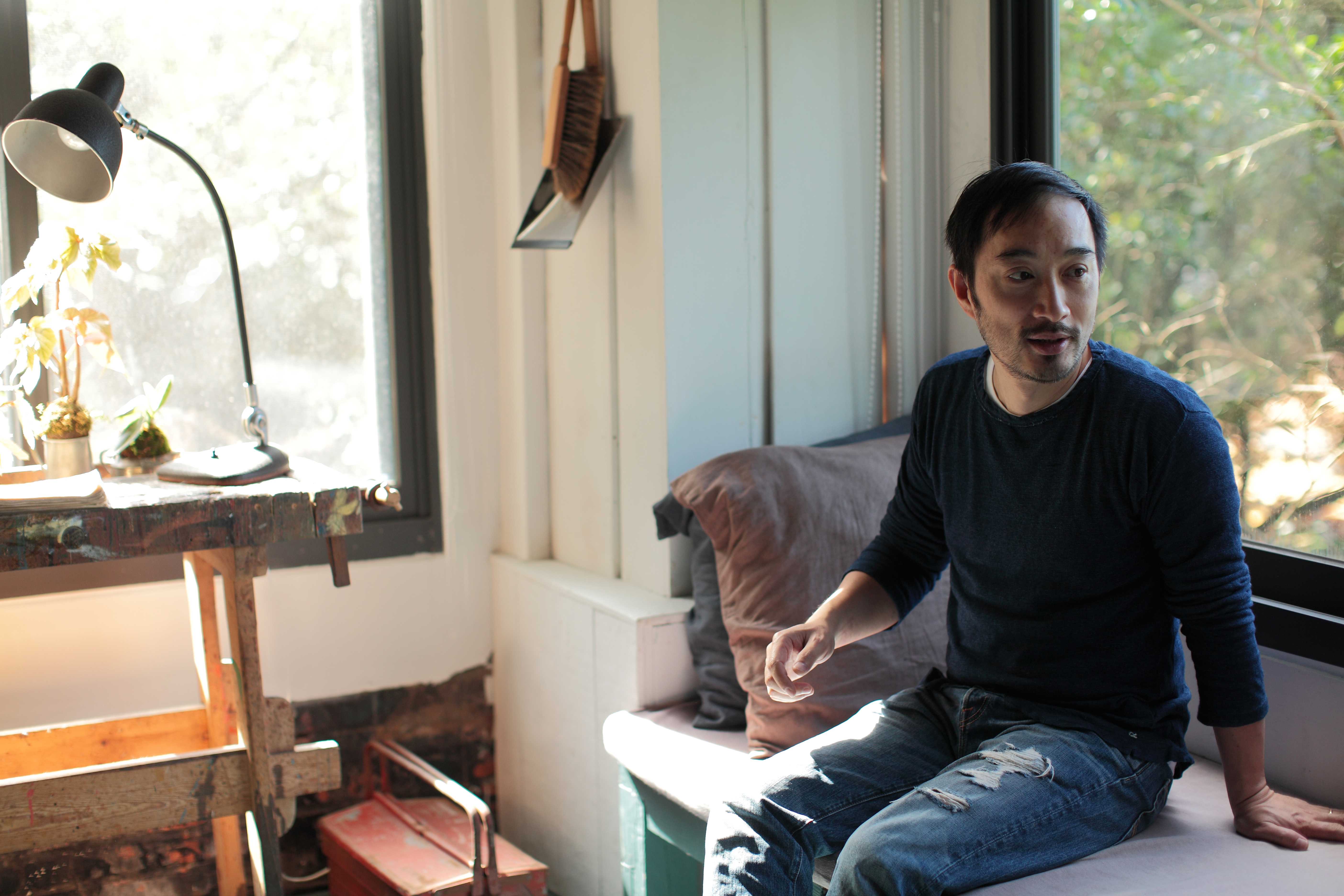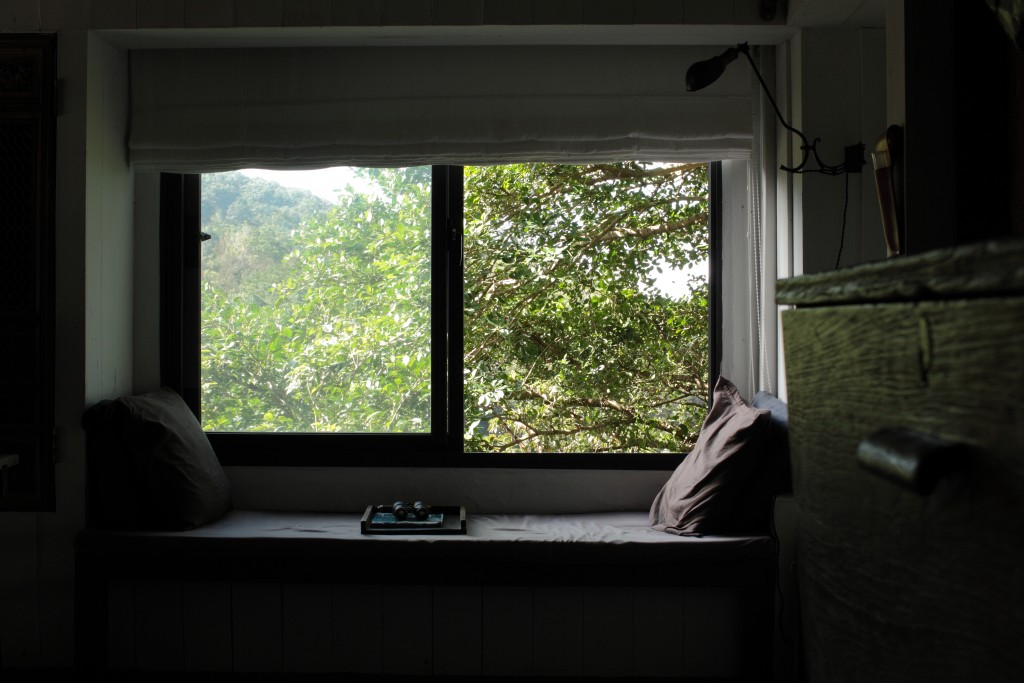On a sunny day, we followed Taipei-based floral artist Alfie Lin to his private guesthouse Shu Shu. On the way to Jiufen, a popular, photogenic mountain town outside of Taipei, we didn’t run into the flood of tourist nor the infamous capricious local weather. We followed a small and quiet path and walked up to the old house hidden in the mountain. On seeing Shu Shu, we immediately understood how it gained its poetic name—sunshine sifted through fragrant osmanthus trees by the window lit up the space. There seems to be this calming, magical power in the air at Shu Shu, just like Alfie Lin’s floral art, which discovers the beauty of common life. Shu Shu is a place where you won’t want to leave once sitting down. It is not only the new start for Alfie’s return to life in the mountains, but also his practice of beauty in Taiwan.
Written by Kat Leung / Photographs by Ivy Chen / Translation by Gladys Tsai
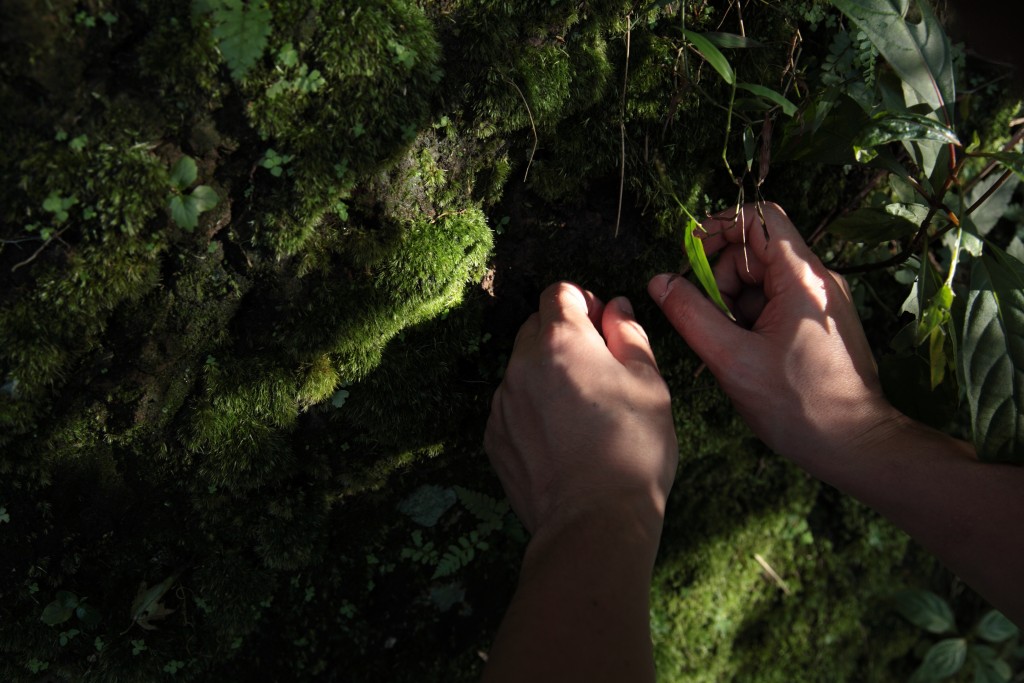
Unforgettable beauty in mountain life
During our conversation at Shu Shu which last hours, we spent most of the time talking about the beauty and nature of Taiwan.
Alfie Lin is the founder of leading flower studio CN Flower, as well as the icon of Taiwan’s floral aesthetic. His most legendary project is probably the production of his first mountain house in Xizhi (current location of restaurant Shi-yang): More than 10 years ago, he turned an abandoned farmhouse into an idyllic paradise and made his dream of mountain residence come true. After he got married, he decided to move back to the city, but he could never forget the beautiful days in the mountains. “I moved away from Xizhi because I felt it would be unrealistic to live deep in the mountains with my family.” But in his eyes, Taiwan is a unique place which allows reality and fantasy to coexist—you can live in the mountains or by the ocean while working in the city. “I’ve always been doing things this way: if I have a blueprint in mind, I’ll slowly spread out my ideas. And by law of attraction, things just naturally happen.
You don’t always get what you ask for
So everything at Shu Shu came both naturally and unexpectedly. When Alfie’s son grew a bit older, he became tempted to look for another mountain house online. Originally his first choice was the Jinguashi area, yet he fell in love with this old house in Jiufen –a grey house covered in moss like ink painting. “Life is strange; you don’t always get what you ask for. We both thought Jiufen is too commercial, but we never realized that we could come here without passing the crowded old street. After we actually bought the house, we realized that it’s only 5 minutes away from the old street.”
“In fact, She Shu is very much like Taiwan. It has been touched by many who left their marks. We shouldn’t just erase them all and build something from scratch.”
All the efforts are hidden in details
Alfie originally designed Shu Shu as a dream place for himself instead of a guesthouse, so instead of a kitchen, he chose to go for a spacious bathroom. “It is quite tiring to cook after climbing up here. I simply believe that there shouldn’t be something that I ‘have to’ do when I come here; I should be on a different moode when I am here.” It took Alfie two years to complete the interior design of Shu Shu. During those two years, he always had Shu Shu’s floor plan and measurements with him, so that he could buy suitable furniture as soon as he found it. Therefore, none of the furniture in the space was custom made. Every single piece of furniture from all over the world fits the space perfectly, and all cords are well hidden. All the efforts are hidden in details. The space he built reflects his unique aesthetics, and it is hard to be described by words. “I feel adjectives no longer matter to Shu Shu. What matters is people being here.”
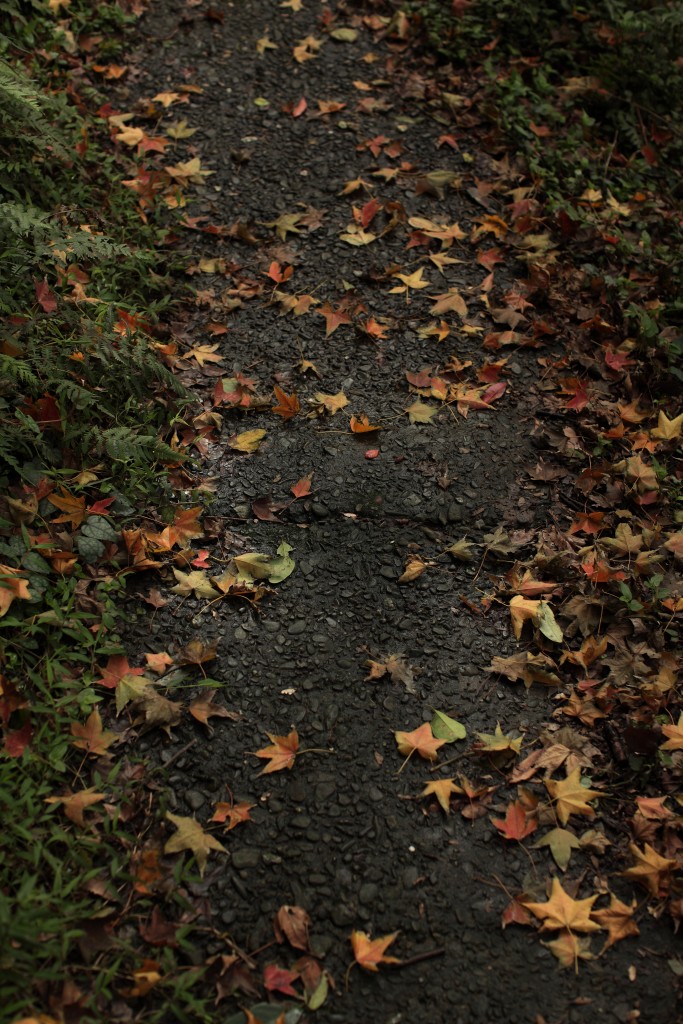
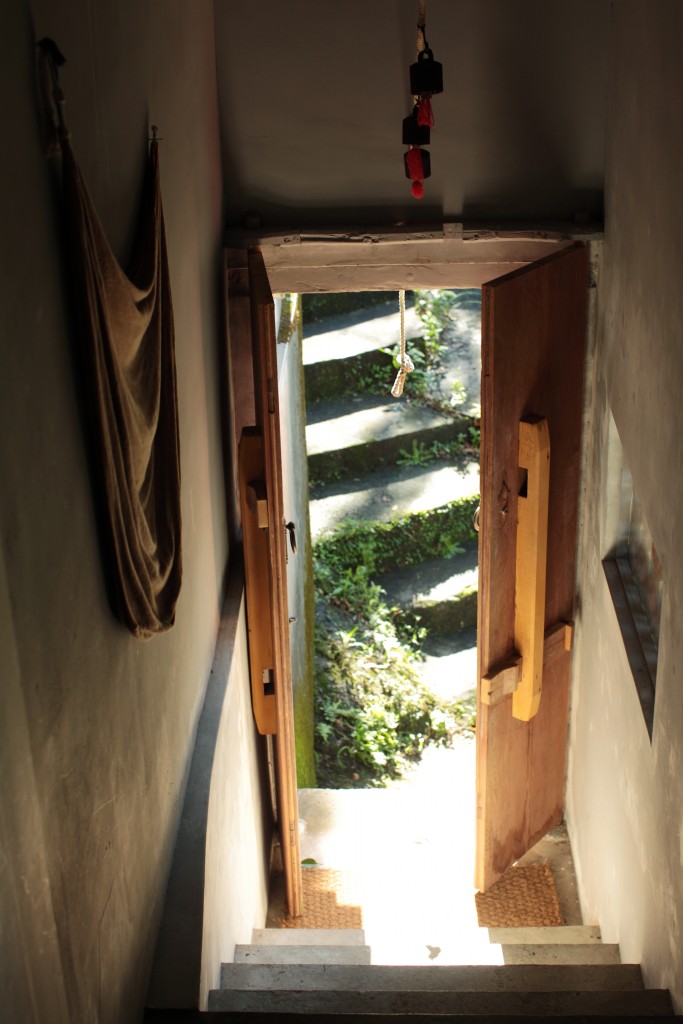
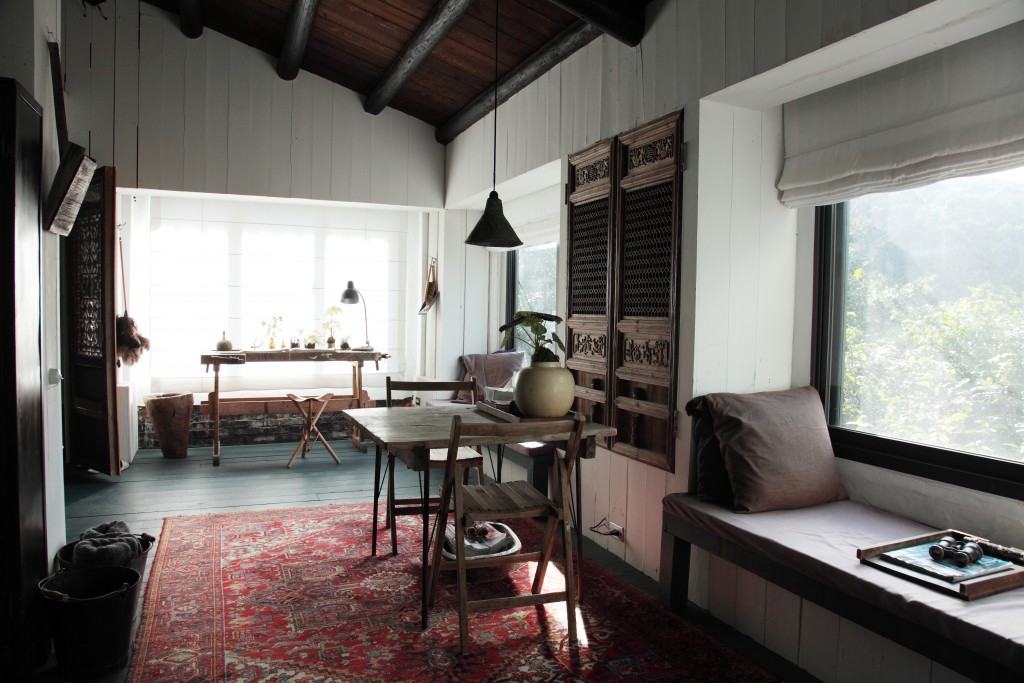
Why did you decide to turn this private vacation house into a guesthouse and open to the public?
Because I had lived in the mountains before and knew that if a house is not used, you’ll have to clean it every time you come. After a while you won’t feel like coming again. We thought that if we had to find someone to manage the house anyway, why don’t we just share it with everyone? People have the impression that Jiufen is a very touristy place, yet it still is a must-go place for every tourist. People complain that guesthouses in Taiwan are not good enough, yet not many people are willing to step forward and create good ones. It is a time of sharing. If you’re not willing to share all the nice details (you know) with others, and let them know that they are not so difficult to achieve, people don’t necessarily see them. For example, when I was little, I had no idea what gourmet food is about, because my family never dine out; all I knew was home dishes cooked by my mom. I only got to learn other flavors after I grew up. It made me understand that not everyone is supposed to know certain things, and those who do should share what they know with others, so that people who don’t can have a chance to understand.
“It is a time of sharing. If you’re not willing to share with others, and let them know that things are not so difficult to achieve, people won’t have a chance to understand more.”
Did the design and decoration of this space come from your thoughts on life?
I’m not an interior designer, but I learned from my job that there in nature, no material is poorer or richer than the other; same for living space. I’m always fond of old spaces. There are many guesthouses in Jiufen, some of which have a strong Taiwan style while some intend to bring back the history of old Taiwan during Japanese occupation. This house was ink painter Lee Tsern-Jong’s home for more than 30 years. For me, the fact that he kept the house is a history itself. The original Chinese lattice windows and high ceiling make the space very oriental, a bit like stilt houses in Chongqing. In my eyes, this place is very much like Taiwan. It has been touched by many who left their marks. We shouldn’t just erase them all and build something from scratch. So I decided to keep and follow what the house originally had and add my own stuff to extend history of the space.
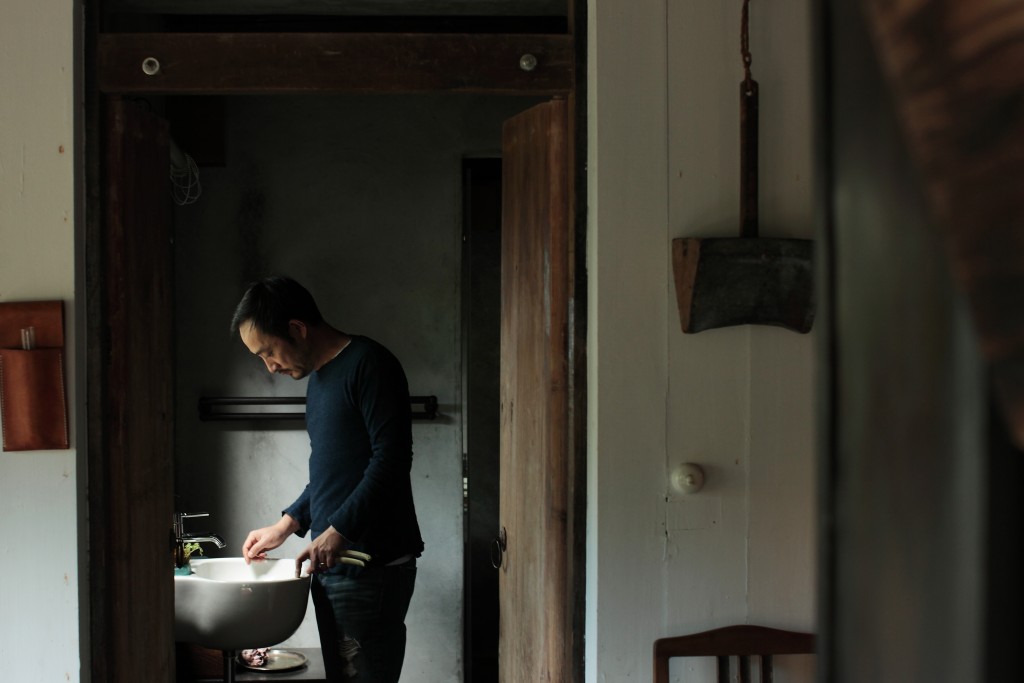
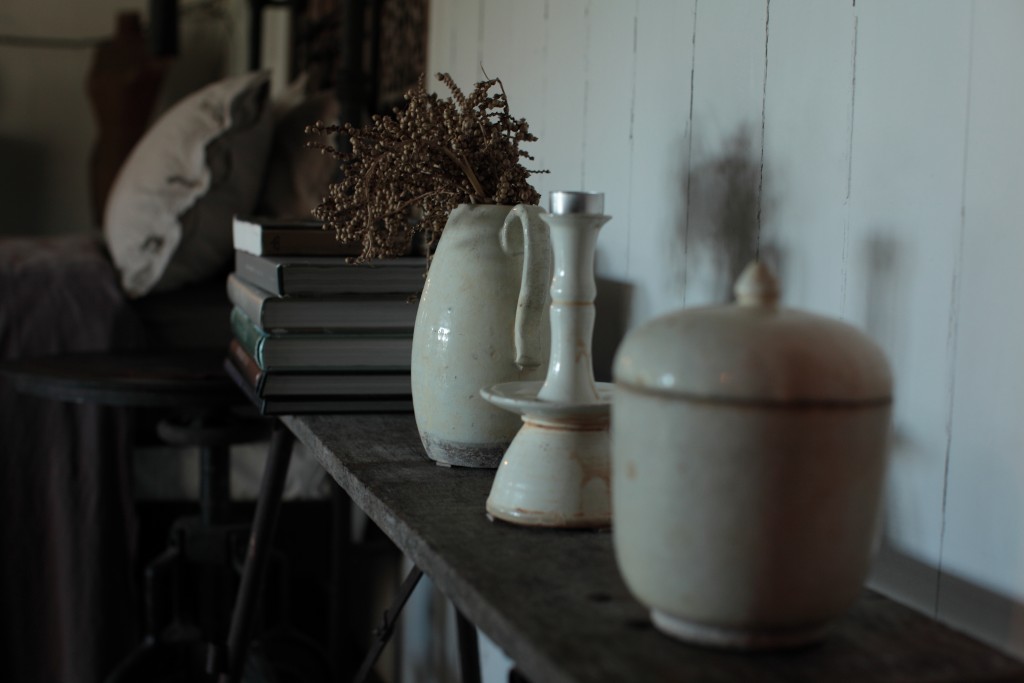
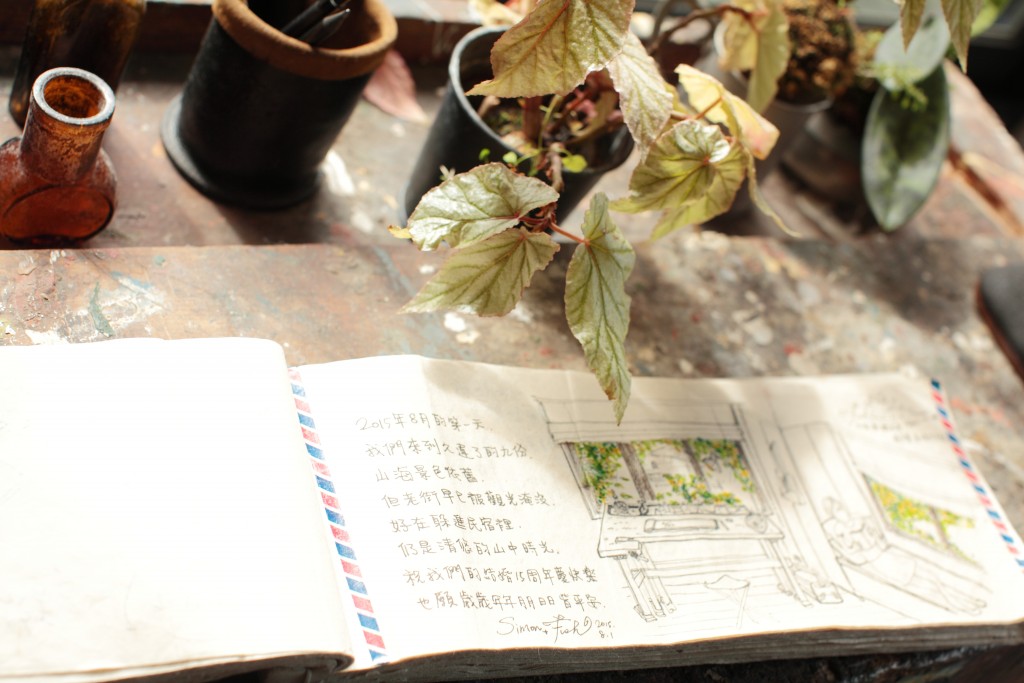
“The outcome of following nature is
always far better than tailor-made.”
Follow nature for everything
Whether Alfie Lin is dealing with space, floral art, life or even family, he is just following nature with a humble heart. “I am not someone good at calculating everything carefully. For example, I never try to come up with a clear picture in advance when I’m doing floral artwork. Instead, I discover materials, dive into places and find out their unique characters. Floral art is created by nature, and all I do is to ‘see’ it. The outcome of following nature is always far better than creating something tailor-made.” When asked to describe Taipei, a city where Alfie has lived for many years, he replied with a simple answer, “accept who you are.” Face the imperfect part of ourselves, share the real us with others, cherish what we have and follow it, this is what we should do in Taiwan. “Nowadays people try too hard to live their lives. They try hard to imitate and learn. Kinfolk became the must-read in Taiwan, Scandinavian and Japanese style of floral art became dominant in the market, but there is no way that you should follow what others create and forget who you really are. Do you want to be a follower of the mainstream or the mainstream that others follow? Having the courage to embrace loneliness makes you a truly brave person.”
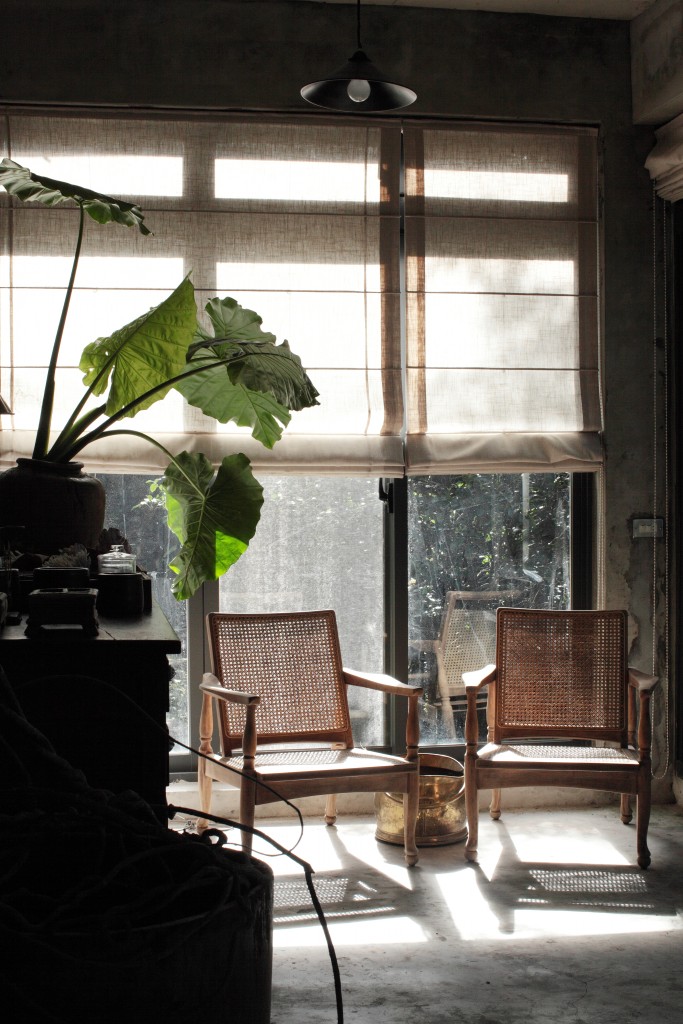
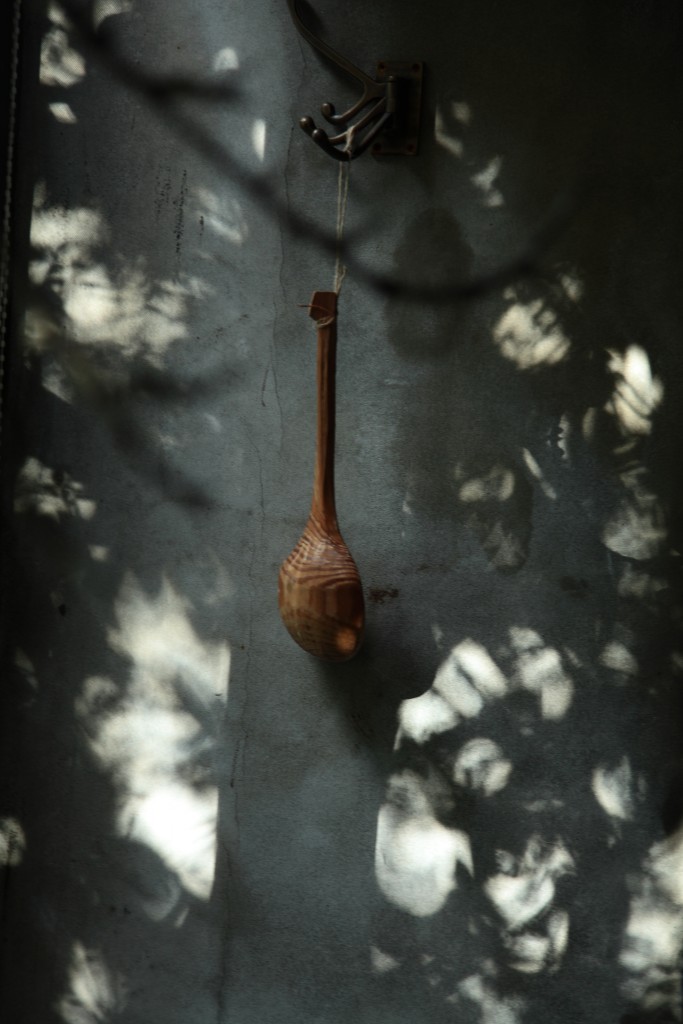
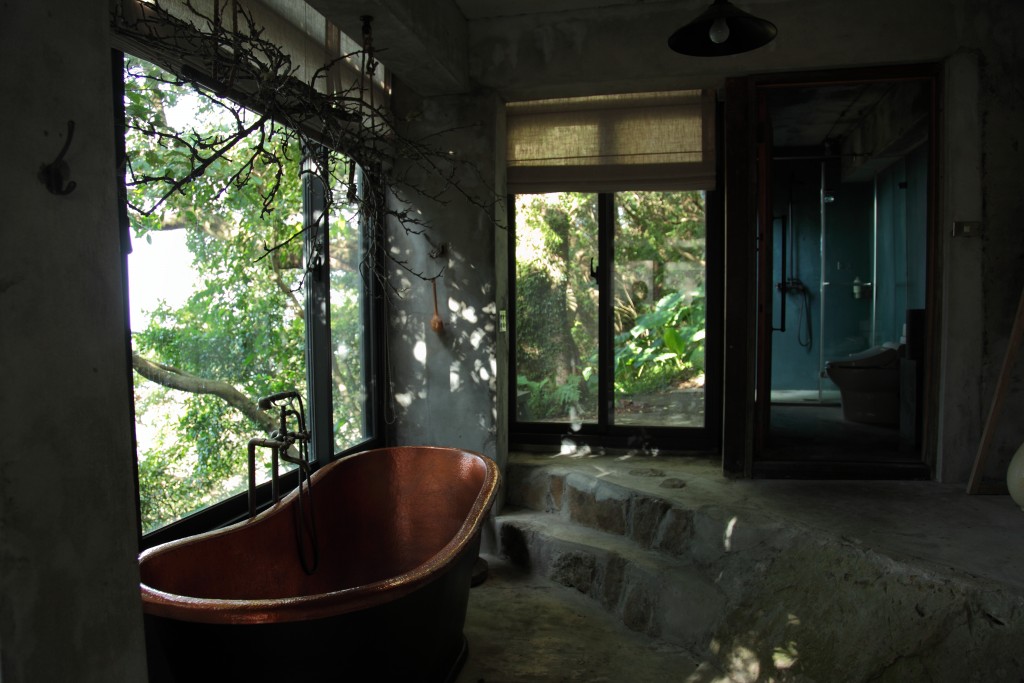
Group fight with “little happiness”
It is never that easy to accept oneself. We always criticize Taiwan for not being good enough and Taiwanese buyers for not having a good taste. We don’t really shop that much in Taiwan. We complain that Creative EXPO sucks, but influential brands don’t participate themselves. When everyone starts to talk about “little happiness,” it is again criticized for not showing a clear direction for the society to improve itself. “But without ‘little happiness,’ you can hardly feel happiness in a city. We need the attitude of ‘little happiness’ to create our happy lives in Taipei. Besides, I always believe in ‘group fight.’ If we can bring everyone’s ‘little happiness’ together, it’ll become something big, something influential.” Alfie deeply understands that many things in Taiwan are not good enough, but he is still happy to shop in Taiwan instead of buying everything from abroad, because he remembers how he, as Taiwanese, has been supported by others throughout the years. He knows very well that people who don’t do things well enough are still better than those who do nothing. “I’d rather people come to spend money and give me some feedback. ‘Little happiness’ today…those people who are still finding their ways need to be helped by capable people. Together they’ll form a force which can influence the public.”
“If I’m already someone who can make an impact, I don’t want to pretend I’m any greater than others. People who can make an impact should make their followers into people who can also make great impacts.”
Just like Shu Shu, if Alfie didn’t share it with others, we would’ve probably seen it as a private house of a successful floral artist—another unattainable place. If all he cared about were displaying furniture of his own brand in this space, instead of trying to figure out what really suit this space, maybe Shu Shu would’ve been just another so-called boutique guesthouse. “If I’m already someone who can make an impact, I don’t want to pretend I’m any greater than others. Those who can make an impact should turn their followers into people who can also make great impacts. You don’t just hide yourself in that circle and be content after you become a noble.” If we can’t start a revolution, we should at least try to make an impact. Don’t hold onto your personal interest; join the group fight and accept Taiwan as the way it is. Gradually this place will change, and it will ultimately show the real beauty which belongs only to Taiwan.
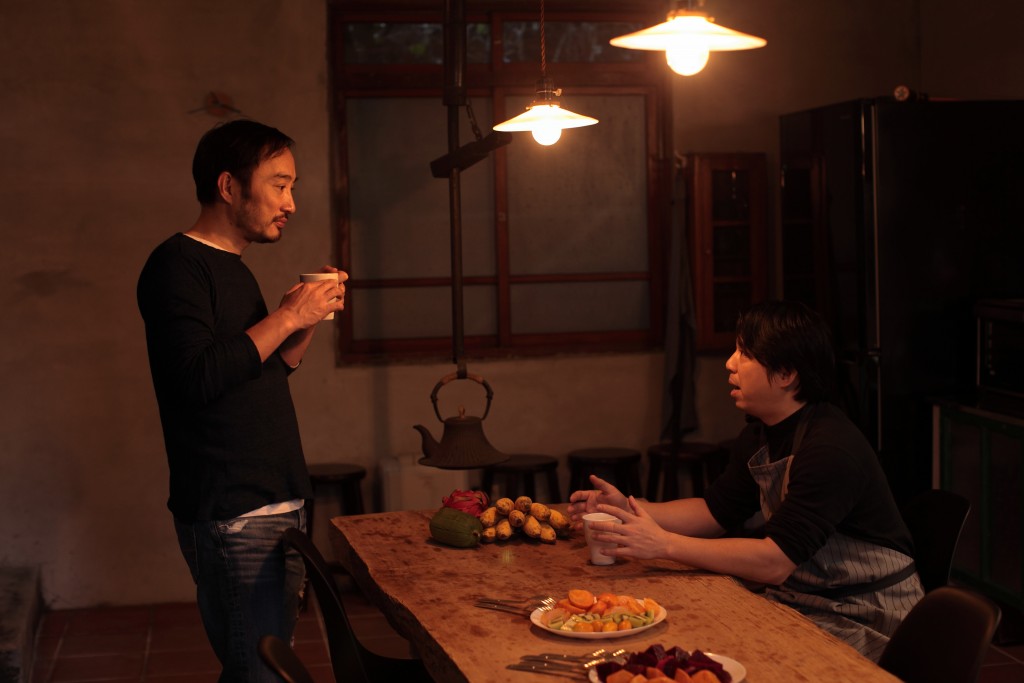
Writer’s note:
The interview was done more like an outing than work. The weather was great; we could even enjoy the view of sky and ocean outside of the window. Alfie took new flowers to replace the old ones in Shu Shu, but to his surprise, the old ones were not rotten but rather dried by the sun, and the green leaves were even turned into a beautiful mix of white and yellow. After the interview, we followed a small path up to check ou the secret earth god shrine. Later we even invited ourselves to Alfie’s friend A-Cheng’s place—a big house he built himself in Jinguashi. On the way home, we ran into perfect sunset and rosy clouds. Nothing was arranged in advance yet everything turned out to be so beautiful. Thank you, Alfie and Shu Shu, for giving us such a wonderful and unforgettable day.
